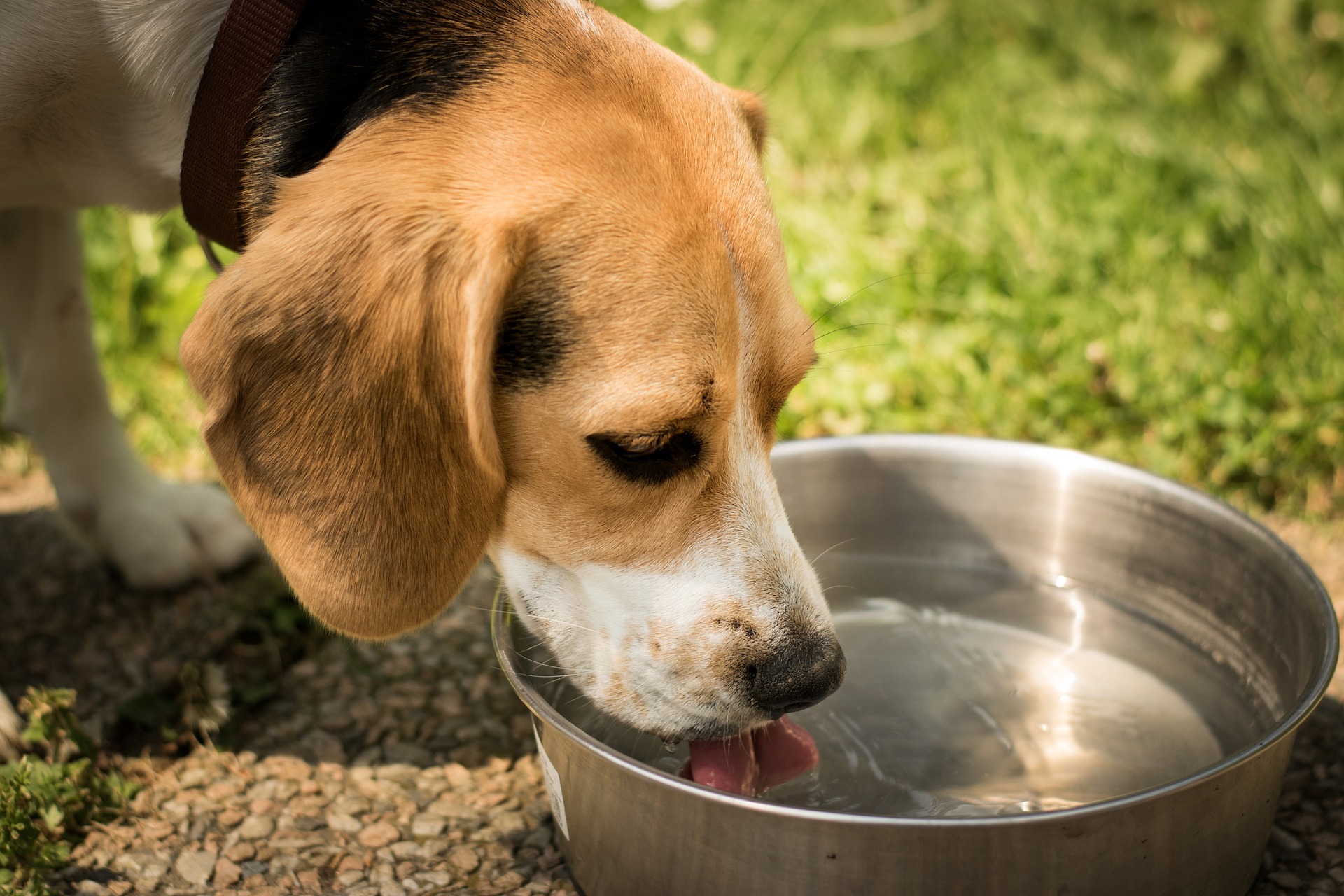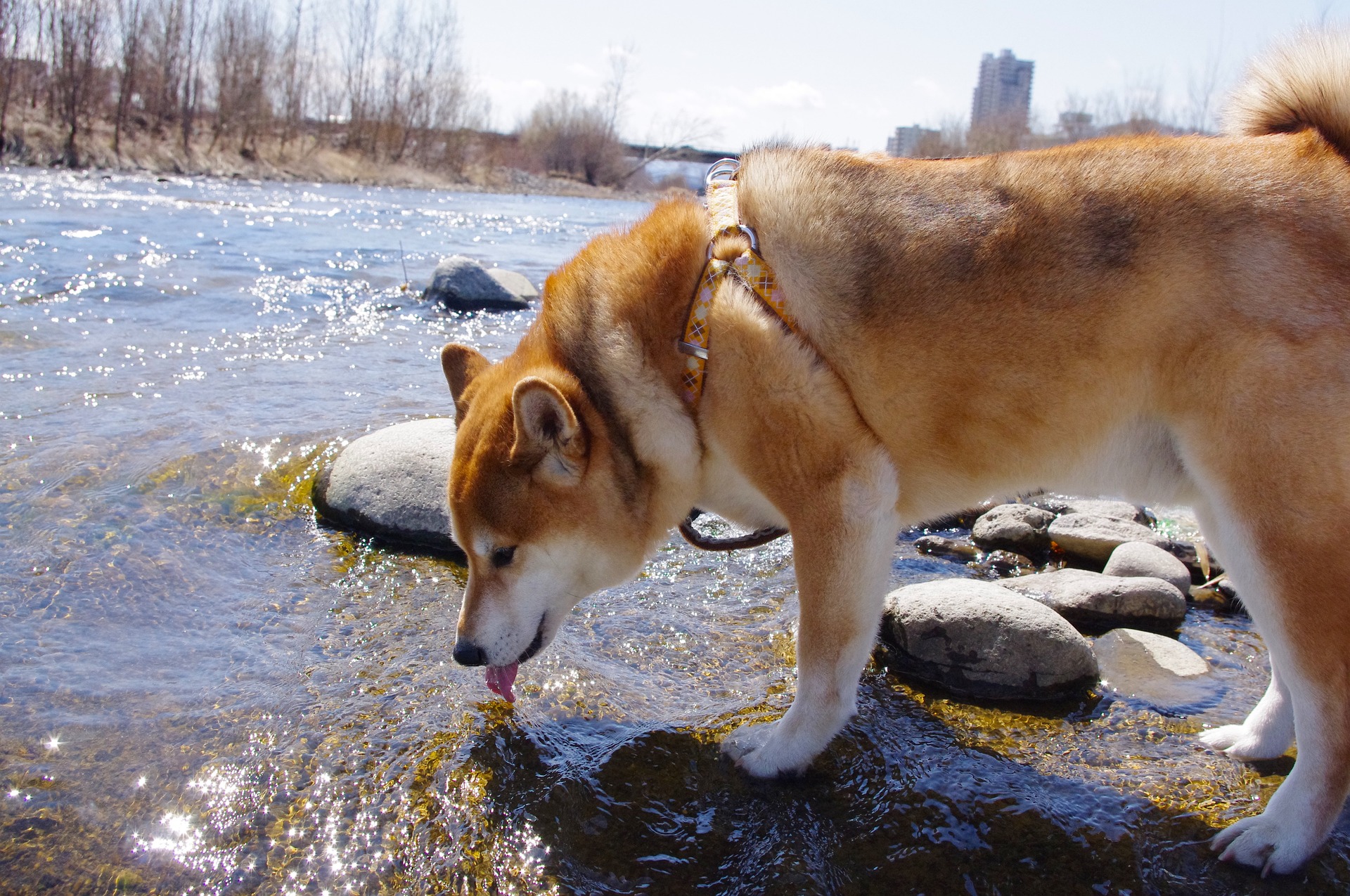If you have noticed that your furry friend is drinking more water than usual, it’s essential to pay attention as it could be a sign of an underlying health issue. Excessive thirst in dogs, also known as polydipsia, is a symptom that many dog owners overlook, but it’s important to understand the potential causes and when to seek veterinary help.
- Excessive thirst in dogs may indicate health issues.
- A dog typically needs 1 oz of water per lb of body weight daily.
- Age and activity levels influence water intake.
- Seek vet help if dog's water consumption increases.
In this article, we will explore why your dog might be drinking so much. We will discuss what constitutes normal water consumption for dogs, common medical conditions that may cause excessive thirst, age-related factors, behavioral and environmental influences, and when to be concerned about your dog’s water intake. We will also provide practical tips for managing your dog’s thirst and promoting their overall health and well-being.
The information provided herein is for informational purposes only. Please refer to our disclaimer for more details..
- How much Water should a dog drink in 24 hours?
- Why is my Dog Drinking Water Excessively? Causes of Increased Water Intake
- What are the Medical conditions that cause increased thirst in dogs?
- Age-related Factors that influence dog to drink a lot
- Behavioral and Environmental Factors that increase water consumption
- When Should I be concerned about my Dog drinking too much water?
- Managing Excessive Thirst in Dogs
- Conclusion
How much Water should a dog drink in 24 hours?
Image credits: 584652.
Before exploring the reasons behind excessive water intake in dogs, it’s essential to understand how much water your dog needs to consume on a daily basis. Water is crucial for their overall health and well-being, and as a responsible pet owner, it’s essential to ensure they have access to clean and fresh water at all times.
So, how much water should you offer your dog? As a general rule of thumb, a dog should drink 1 ounce of water per pound of body weight each day. For example, a 10-pound dog should consume approximately 10 ounces of water per day. However, this is just a guideline, and your dog’s water intake may vary depending on their age, activity level, and diet.
It’s also important to ensure that your dog’s water bowl is always filled with fresh, clean water. This means regularly washing the water bowl and refilling it with fresh water throughout the day. A dirty water bowl can be a breeding ground for bacteria, which can lead to health issues.
Why is my Dog Drinking Water Excessively? Causes of Increased Water Intake
Image credits: May_hokkaido.
A healthy adult dog drinks one ounce of water per pound of weight, if you notice your dog is drinking a lot more water than usual that indicates there may be an underlying health issue.
Common causes of excessive drinking includes: Kidney disease characterized by increased thirst and polyuria(frequent urination), Diabetes mellitus and Diabetes Insipidus( a rare condition that causes frequent urination and thirst), Cushing’s disease/ Hyperadrenocorticism, a hormonal imbalance due to abnormal production of Adrenocorticotropic hormone causes increased cortisol release from adrenal glands causing increased thirst. Other medical causes include Fever, Hyperthermia ( increased body temp due to overheating).
Some of the infections that affect the liver and kidneys can also cause polydipsia, for instance, Blood parasite infection in dogs like Anaplasmosis, Ehrlichiosis and Babesiosis causes Fever and affects body organs including liver and kidney.
Apart from health-related issues, environmental factors like high ambient temperature and humidity affects perspiration and triggers excessive thirst in dogs. Similarly, stress can stimulate the release of cortisol from the body causing polyuria and polydipsia.
Different Factors That Influence Your Dog’s Water Intake
Various factors can affect your dog’s water intake, such as:
- Age: Puppies and senior dogs may need more water than adult dogs.
- Activity Levels: Dogs that are more active may need more water to stay hydrated.
- Diet: A dog’s diet can affect their water intake. Dry kibble requires more water to digest, and dogs on a wet food diet may consume less water. Moreover, salts in food are not only harmful for dog’s liver and kidney, it also increases thirst in dogs.
- Weather: Hot weather can cause your dog to drink more water than usual to stay cool.
What are the Medical conditions that cause increased thirst in dogs?
If your dog is drinking more water than usual, it could be a sign of an underlying medical condition. Here are some common health issues that can cause excessive thirst in dogs:
- Kidney Disease – Vomiting, weight loss, decreased appetite, lethargy
- Diabetes – Increased urination, weight loss, lethargy, decreased appetite
- Cushing’s Disease – Increased thirst and urination, hair loss, pot-bellied appearance, lethargy
- Liver Disease – Vomiting, diarrhea, yellowing of the skin and eyes, decreased appetite, lethargy
- Hypercalcemia – Increased thirst, vomiting, diarrhea, lethargy, decreased appetite
Polydipsia is the medical term used to describe excessive thirst in dogs. If you suspect your dog has increased thirst, you should consult your vet for a thorough examination and possible diagnosis of the underlying condition.
Age-related Factors that influence dog to drink a lot
As your dog ages, their water intake may change, and they may have specific hydration requirements that need to be met. You may have noticed your senior dog drinking so much water that is due to a problem with kidney function and losing their ability to conserve water, resulting in increased water consumption. Additionally, older dogs may be less active and require less water than active dogs.
It’s vital to monitor your senior dog’s drinking behavior and ensure they have easy access to fresh water at all times.
| Situation | Hydration Needs |
|---|---|
| Sedentary senior dogs | May drink less water than active dogs |
| Senior dogs with kidney disease | May have increased water intake |
| Senior dogs with dental issues | May require soft food or water added to their food |
Behavioral and Environmental Factors that increase water consumption
Excessive water intake in dogs can sometimes be influenced by behavioral or environmental factors. As a responsible dog owner, it’s essential to monitor your dog’s drinking habits and be aware of any changes that might indicate an issue. Here are some factors that may cause your dog to drink more water than usual:
Hot Weather
During the summer or in warmer climates, dogs may drink more water to regulate their body temperature. Provide plenty of fresh, clean water at all times, and consider adding ice cubes to their bowl to keep water refreshing and cool.
Increased Activity Levels
If your dog is more active than usual, they may drink more water to replenish fluids lost through panting or sweating. Make sure your dog has access to water during and after exercise, and monitor their hydration levels to ensure they don’t become dehydrated.
Water at Night
Dogs may drink more water at night due to a variety of reasons, such as thirst or boredom or dry air at night. You can try limiting water intake before bedtime, consider using humidifiers to address the issue of drying out of air in the room, providing a water dispenser that limits the amount of water released at one time.
When Should I be concerned about my Dog drinking too much water?
As a dog owner, it’s essential to keep an eye on your canine friend’s water consumption. Knowing your dog’s typical drinking habits can help you recognize when something might be amiss. If you notice your dog drinking excessively or more frequently than usual more that one ounce per pound, it’s time to evaluate whether or not there is a problem.
Pay attention to your dog’s drinking habit and the amount of water they consume daily. If you suspect your dog is drinking too much water, it’s essential to monitor their behavior and seek veterinary care if necessary.
Other signs that you should be concerned about your dog’s water intake include:
- Drinking significantly more water than usual
- Excessive drinking during the night
- Drinking more water despite cooler temperatures
- Changes in urination pattern, such as more frequent urination or larger volume of urine
If you are concerned about your dog’s water consumption, consult a professional vet. The vet can perform a thorough evaluation to determine if there is an underlying health issue contributing to excess water intake.
Managing Excessive Thirst in Dogs
In order to manage the issue of excessive thirst, you should first identify the underlying reasons why your dog is drinking more than usual. There are a number of causes of an increase in thirst, it could be a medical issue or there can be some problem with the diet or environment. Consult a Veterinarian, and provide a thorough history of the diet, drinking habits, and any previous illness. Your vet will diagnose the problem and give appropriate treatment and may make changes to their diet.
Make sure to provide fresh clean water, adjust the environmental temperature and humidity, alleviate any stressful conditions to manage the issue of excessive thirst. Never deprive your dog of water out of fear of the condition.
Conclusion
Now that you understand the potential reasons behind why is your dog drinking lots of water, it is essential to monitor their daily intake and be vigilant for any changes in their drinking habits. Excessive thirst in dogs can be a sign of an underlying health issue, and as a responsible pet owner, it is your duty to identify those issues promptly.
Dogs are at risk of various medical conditions that may cause them to drink a lot more water than normal. Kidney disease, diabetes, and Cushing’s disease are just a few examples. As your dog ages, their hydration needs may also change, and it is crucial to ensure that your senior dog is getting enough water.
Excessive thirst in dogs can be a symptom of various medical conditions and age-related issues. It can also be influenced by behavioral and environmental factors. As a responsible pet owner, it is critical to monitor your dog’s water consumption, understand the reasons behind any changes, and seek veterinary help when necessary.
459views
Share on Facebook
 Dark Mode
Dark Mode 

 No fees, cancel anytime
No fees, cancel anytime 




















































2
0